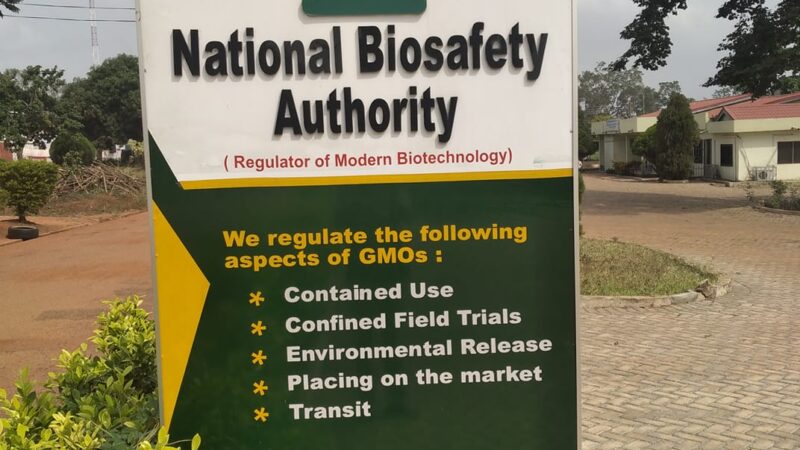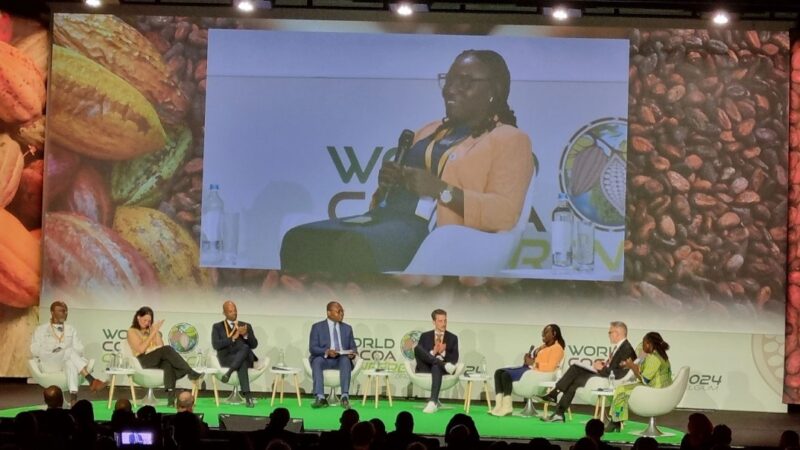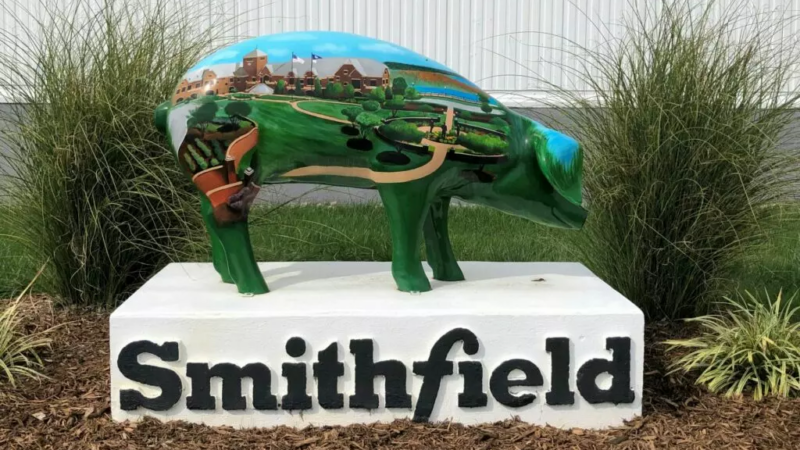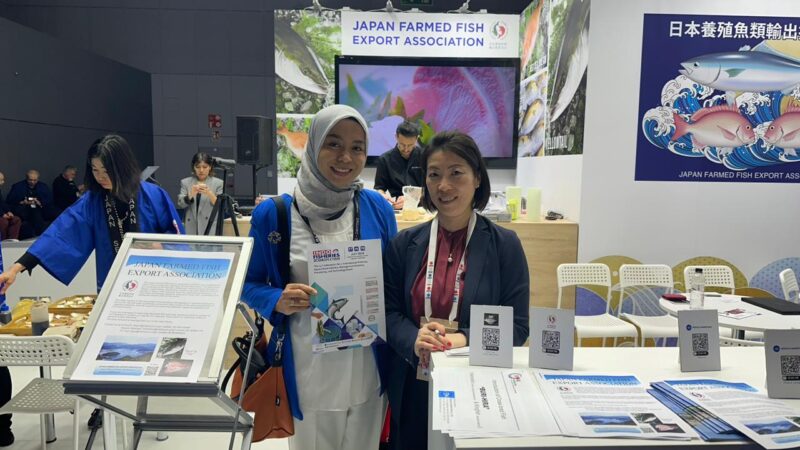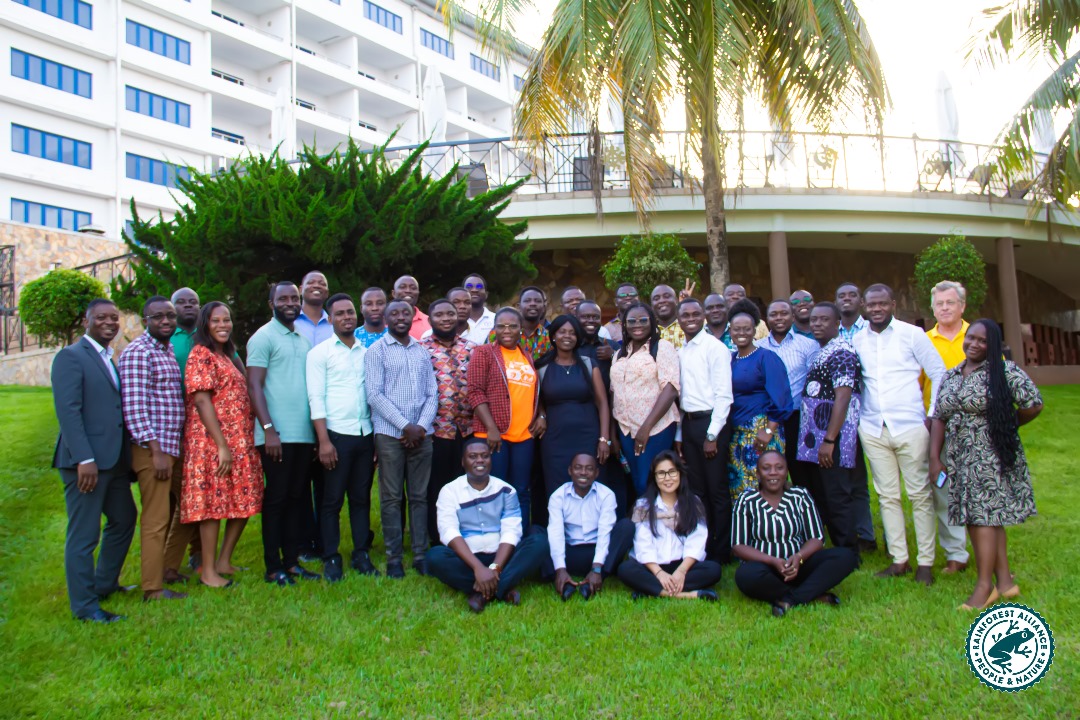
A day’s workshop has been organized in Kumasi by the Rainforest Alliance, an International Non-profit Organization, for its partners and sustainability managers to among other things, introduce them to the new 2030 Strategy of the organization as well as update them on the latest Certification and Landscape Projects being implemented by the organization.
The workshop was attended by partners and stakeholders from Major Brands such as Nestle Ghana Ltd and Heshy as well as Certificate Holders (Cooperatives), Farmer Based Organizations and Licensed Buying Companies), Certification Bodies/Auditors and Associate Trainers Networks.
Addressing the participants during the workshop, the Country Director for Rainforest Alliance Ghana and Nigeria, Kwame Osei Boateng explained that farmer centricity is key to the success of the 2030 strategy of the organization.
He therefore urged all partners and stakeholders to align their efforts to achieve impact at speed and scale at the farmer level.“With our new strategy, the target is to reach 100 million farmers by 2030 with our interventions and activities in the communities where we work.
“We are aware that most of your organizations also have a strong presence in some of these communities so the plan is to see how we can align our efforts and activities so that together, we can reach out to more beneficiaries with our programs. “We need a transformative global alliance that puts farmers and rural communities at the heart of the solutions we propose.“Through this approach, we can accelerate change at the speed and scale the world needs,” he explained.
Certification and Landscape activities Manager, Certification Partner Support for Rainforest Alliance, Leslie Adwoa Agyapong indicated that in the 2022/2023 season, about 300,000 Ghanaian farmers contributed to the sale of 150,800 MT of Rainforest Alliance certified cocoa. She assured the partners that the Rainforest Alliance will continue to offer the needed support to them throughout their sustainability journey.
On the issue of the emerging EU legislation, Leslie Agyapong explains that the Rainforest Alliance has already shared its offerings to support both certified and non-certified entities and companies to enable them to comply with the legislation.
On his part, Emmanuel Bawuah Antwi, Senior Associate for Landscapes and Communities project at the Rainforest Alliance, explained that the organization is placing producers and rural communities at the heart of sustainable actions, working to bolster regenerative agriculture, and promoting collaboration among actors involved in tackling the interconnected challenges in cocoa and forestry sectors.
“Through our RESTORE and LEAN Projects, we have provided a model for community-led governance, biodiversity conservation, climate change mitigation, and resilience that is in line with local and governmental priorities and have also distributed more than 200,000 indigenous tree seedlings to communities and other stakeholders.
“Our aim is to encourage smallholder farmers to develop their entrepreneurial skills and assist them to start businesses that diversify their sources of income and provide more opportunities for women and young people” he emphasized.
Feedback
Some of the sustainability managers and project leaders of the participating organizations in their presentations expressed gratitude to the Rainforest Alliance for introducing them to their new strategic approach that is aimed at increasing the level of support to beneficiary communities across the country.
They admonished the organization to continue to lead the way in embarking on a sustained community education and public awareness campaign about the need to protect forests, improve the livelihoods of farmers and forest communities.
- About the Rainforest Alliance
The Rainforest Alliance is an international non-profit organization working to create a world where people and nature thrive together through the creation of a more sustainable world using social and market forces to protect nature and improve the lives of farmers and forest communities.
The organization which is operational in over 130 countries across the globe including Ghana, works to achieve its mission, by partnering with diverse allies around the world to drive positive change across global supply chains in many critical natural landscapes through the implementation of proven and scalable solutions on the ground.

